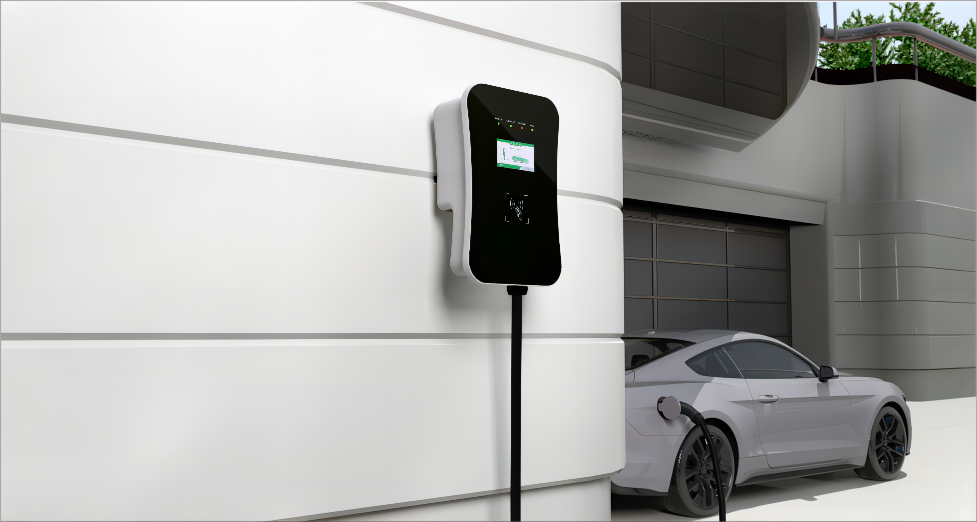It's worth noting that AC chargers are best suited for regular daily charging needs, such as overnight charging at home or charging during the workday at a business. For long-distance travel or when a quick charge is needed, DC fast chargers provide higher charging speeds.
Standard:
SAE Standard / IEC StandardConnector type:
Type 1 / Type 2Connector Mechanical Operating Life:
≥10000 times
EV chargers, also known as Electric Vehicle chargers, are devices used to charge electric vehicles. They provide the necessary electrical energy for the battery of an electric vehicle to charge and operate. EV chargers come in different types and configurations to accommodate various charging needs. The features available in EV chargers can vary depending on the charger model and manufacturer.
When considering an EV charger, it's beneficial to research and compare the available features to choose one that suits your specific charging requirements.

What's the main components inside an EV charger?
1- Power Source: EV chargers require a power source to provide the electrical energy.
2- Charging Station: The charging station is the physical infrastructure that houses the charging equipment.
3- Charger Controller: The charger controller manages the charging process and communicates with the electric vehicle.
4- Communication Interfaces: EV chargers often include communication interfaces to interact with other systems or networks.
5- Metering and Payment System: EV chargers may have metering capabilities to measure the amount of energy consumed during charging.
6- Safety Features: To ensure safe and reliable charging, EV chargers incorporate various safety features such as ground fault protection, current limiting, overvoltage protection, temperature monitoring, and circuit breakers.

EV chargers are used in various situations, including:
1- Residential Charging: EV owners can install chargers at home to conveniently charge their vehicles overnight or whenever needed. Residential chargers are usually slower but are sufficient for daily charging needs.
2- Commercial Charging: Chargers are installed in public places like shopping malls, parking lots, workplaces, or roadside stations to provide charging infrastructure for EV users while they are away from home.
3- Fast Charging Stations: Fast charging stations are equipped with high-power chargers capable of delivering a significant amount of electricity in a short time. These stations are usually located along highways or in strategic locations to enable long-distance travel for EVs.
4- Destination Charging: EV chargers are also installed at hotels, restaurants, tourist attractions, and other destinations to attract EV drivers and provide them with the means to charge their vehicles while they are engaged in other activities.
Overall, the purpose of EV chargers is to enable the convenient and efficient charging of electric vehicles, supporting the widespread adoption of electric mobility.

Here are a few common methods to minotor EV Chargers:
1- Centralized Monitoring System: EV chargers can be connected to a centralized monitoring system that allows operators or administrators to remotely monitor the charging status, energy consumption, and any faults or abnormalities of the chargers.
2- Mobile Applications: Many EV charger manufacturers provide mobile applications that allow users to monitor and control the charging process.
3- Web Portals: Some EV charging networks offer web portals where users can log in to monitor their charging sessions, view charging history, and access other relevant information.
4- RFID or NFC Card Integration: EV chargers can be equipped with RFID (Radio-Frequency Identification) or NFC (Near Field Communication) card readers.
5- Display Screens: Many EV chargers have built-in display screens that show real-time charging information, such as charging power, charging time
Monitoring EV chargers can involve tracking their usage, availability, power consumption, and charging status. This can be done through software systems that collect data from the charger controllers, communication interfaces, or sensors embedded within the chargers. The collected information can be accessed and analyzed through a central management platform or mobile applications, providing insights, diagnostics, and control over the charging infrastructure.
FAQs:
Q1: Do you support OEM/ODM?
A:Definitely, OEM&ODM service is supported with a certain quantity,including customize logo,package and label;
Q2: What's the production time?
A: The production time is normally 15 working days. but we will always prepare some stocks for popular models.
Q3: Can you provide DDP service?
A:Yes, if you are a personal customer and don't want to deal with the customs, we can provide DDP service to your address.
Q4: What about the warranty and how to claim?
A: Warranty period are 5 years since you receive the product, our professional after-sales team will deal with all warranty issues.